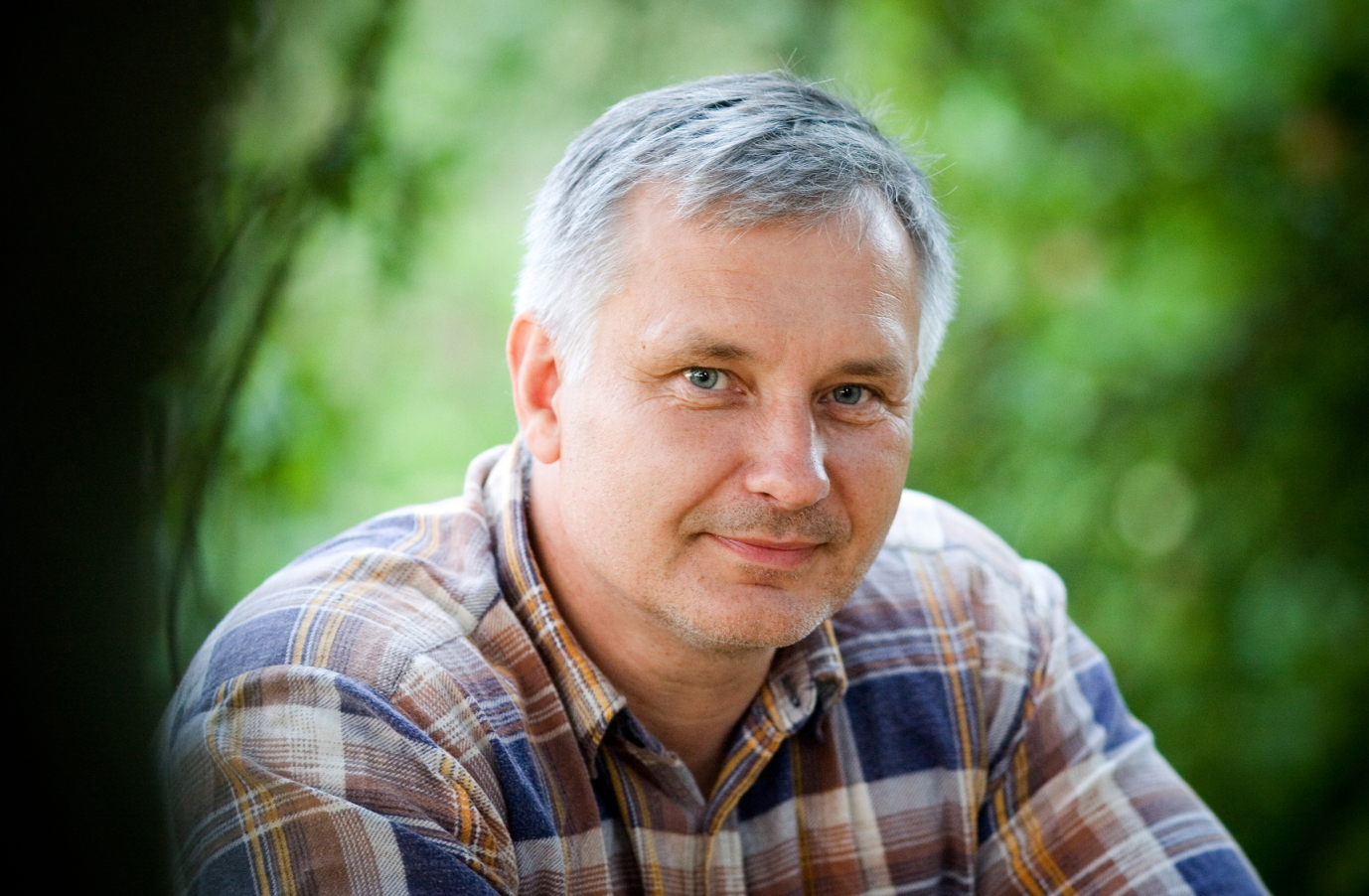Invited plenary speakers
Dr. Kevin Gaston
Professor of Biodiversity & Conservation and the Founding Director of the Environment & Sustainability Institute at the University of Exeter.
Kevin Gaston is an ardent proponent of studying the implications of physiological variation over large spatial and temporal scales and one of the founders of both macroecology and macrophysiology. He has authored over 450 papers and is an ISI Web of Knowledge Highly Cited Researcher. He has been a Leverhulme Research Fellow, recipient of a Royal Society-Wolfson Research Merit Award (2006-11), and in 2011 was elected to Academia Europaea.
As an invited speakaer, Kevin will talk about macrophysiology, which investigates variation in physiological traits over large geographical and temporal scales, and it studies ecological implications of this variation. Macrophysiology strives for identification of patterns and understanding their origin. In doing so it attempts to address pressing global issues such as climate change, habitat destruction, invasive species, overexploitation and pollution.
Dr. Michael Angilletta, Jr.
Professor and the Associate Director of Undergraduate Programs in the School of Life Sciences at Arizona State University.
Mike Angilletta studies the impacts of temperature on organisms and their consequences for ecological and evolutionary processes. His research on thermal biology has generated more than 70 scientific papers, but he is best known for his award-winning book, Thermal Adaptation. Mike has a passion for teaching biology at the introductory level, combining a love for thinking broadly with a flair for telling funny stories. He was recently voted ASU's Funniest Teacher, an honor that he cherishes more than any academic achievement.
As an invited speaker, Mike will talk about that ways that physiologists can contribute to the emerging discipline of macrosystems ecology, a computationally intensive approach to scaling from organismal processes to regional patterns. His talk will focus on theory and experiments that address the impacts of climate change on the distributions of species.
Dr. Theodore Garland, Jr.
 Professor of Biology at the Department of Biology, University of California, Riverside, Editor in Chief of the journal Physiological and Biochemical Zoology.
Professor of Biology at the Department of Biology, University of California, Riverside, Editor in Chief of the journal Physiological and Biochemical Zoology.
Ted Garland did his PhD at the University of California, Irvine. His main research interests concern the evolution of complex behavioral and physiological adaptations, especially related to locomotor performance of terrestrial vertebrates. He has become a renowned proponent of two major approaches in modern evolutionary physiology: quantitative genetics combined with experimental evolution, and phylogenetically informed comparative analyses. The former approach has led him to develop a unique study system – mice selectively bred for increased voluntary exercise on wheels. The experiment started in 1993 and has so far resulted in more than 120 research papers. His co-edited book, Experimental Evolution (2009), is a benchmark in the field. Methods and statistical software developed by Ted to consider phylogenetic perspectives in data analysis are now popular tools in a wide range of research areas. He has published almost 260 papers that have been cited a total of nearly 23,000 times.
As an invited speaker, Ted will talk about his two approaches as complementary tools for resolving questions in comparative, ecological, and evolutionary physiology.
Dr. John R. Speakman

Professor of Zoology in the School of Biological Sciences, University of Aberdeen and a ‘1000 Talents' professor in the Institute of Genetics and Developmental Biology, Chinese Academy of Sciences in Beijing.
John Speakman did his PhD at the University of Stirling, Scotland. He was given the special expert status by the Chinese government, the highest honorary status for a foreign national in China. He was awarded several international prizes including the Zoological Society of London scientific medal, the Royal Society of Edinburgh/Saltire Society Scottish Science Medal, the Kwarazmi International festival Guest of Honor, the Chinese Academy of Sciences Bing Zhi Forum International Professorship, the CAS-Novo-Nordisk Foundation ‘Great Wall' professorship. John Speakman was elected the Fellow of the Royal Society of Edinburgh and the Fellow of the Academy of Medical Sciences. He was also elected to the European Academy of Sciences (Academia europaea).
John Speakman studies the causes and consequences of inter-individual variation in energy expenditure, especially the consequences of variation in energy demands for fat storage and the linkage between energy demands and ageing. His work provided a background to understanding the physiological basis of animal and human responses to energy imbalance including obesity and diabetes. He is a recognised international authority in the use of stable isotope methodologies to study energy expenditure (in particular the doubly-labelled water method). He has published over 400 peer reviewed scientific papers, including twice on the cover of Nature. He is on the editorial boards of Science and Biology Letters and several other journals and was a director on the board of the Company of biologists between 2005 and 2011.
As an invited speaker, John will talk about the links between energy metabolism, oxidative stress, life histories and ageing. We all age and this is associated with profound morphological and physiological changes (see inserted photographs of John aged 1 and 55!). The idea that energy metabolism is associated with ageing is very old and forms the basis of the rate of living theory which was one of the first theories of why we age and die. It was given a potential mechanism by the discovery of free-radicals and free-radical mediated damage to macromolecules in the 1950s. Since then the idea has been expanded to explain the physiological basis of life history trade-offs. John has been studying these associations for the past decade and in the talk will summarise his work in this area.
Dr. Elżbieta Pyza
Professor of Cell Biology and Neurobiology, Head of the Department of Cell Biology and Imaging, Institute of Zoology, and Scanning Electron Microscopy of the Faculty of Biology and Earth Sciences, Jagiellonian University, Kraków, Poland.
Elżbieta Pyza studies circadian neuroplasticity - a new type plasticity in the nervous system. She received the Canadian NSERC and Polish Academy of Sciences Awards and a scholarship of the Howard Hughes Medical Institute. She was also awarded with the President of Poland Silver Cross for scientific achievements. She is a corresponding member of the Polish Academy of Arts and Sciences and the Chairwoman of the Comission on Embryology and Morphology of the Academy.
Elżbieta Pyza was first, in collaboration with Dr. Ian Meinertzhagen from Dalhousie University, Halifax, Canada, to detect cyclic oscillations in synaptic contacts and morphology of neurons in the visual system of Drosophila melanogaster and other fly species. This phenmenon is called circadian neuroplasticity and recently it was also observed in mice. Now she and her collaborators are studying the regulation of circadian neuroplasticity by circadian clocks and mechanisms of this process.
As an invited speaker, Elżbieta will talk about circadian rhythms in the visual system of Drosophila and in the somatosensory cortex of mice.
Dr. Marek Konarzewski
 Professor of Biology at the Institute of Biology, University of Białystok, Poland and the Corresponding Member of Polish Academy of Sciences.
Professor of Biology at the Institute of Biology, University of Białystok, Poland and the Corresponding Member of Polish Academy of Sciences.
Marek Konarzewski pursued his PhD and D.Sc. degrees at the Polish Academy of Sciences Institute of Ecology and then returned to the University of Białystok, after postdoctoral work in Dr. Jared Diamond's laboratory at the University of California, Los Angeles.
Marek's research interests interface evolutionary ecology, eco-physiology and quantitative genetics of vertebrates. He uses both laboratory and natural settings to study physiological traits (mostly related to metabolism) from molecular to whole-animal levels. He is a member of Editorial Board of Physiological and Biochemical Zoology and serves as an Associate Editor of Functional Ecology.
As an invited speaker, Marek will address implications of the cell size for the key organismal traits - body size and metabolic rates and their links to major molecular traits - genome size and pathways such as mTOR. His presentation will be co-authored by Dr. Jan Kozłowski, Professor of Biology at the Institute of Environmental Sciences, Jagiellonian University.